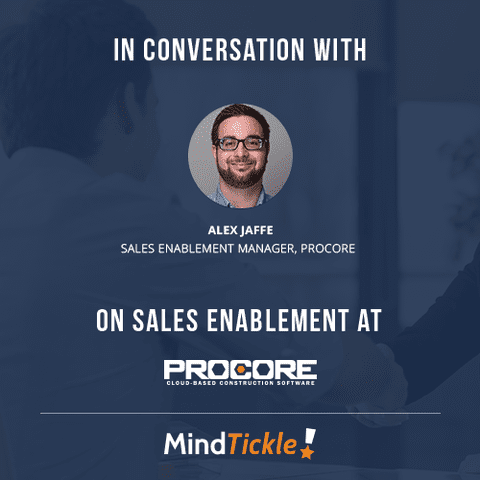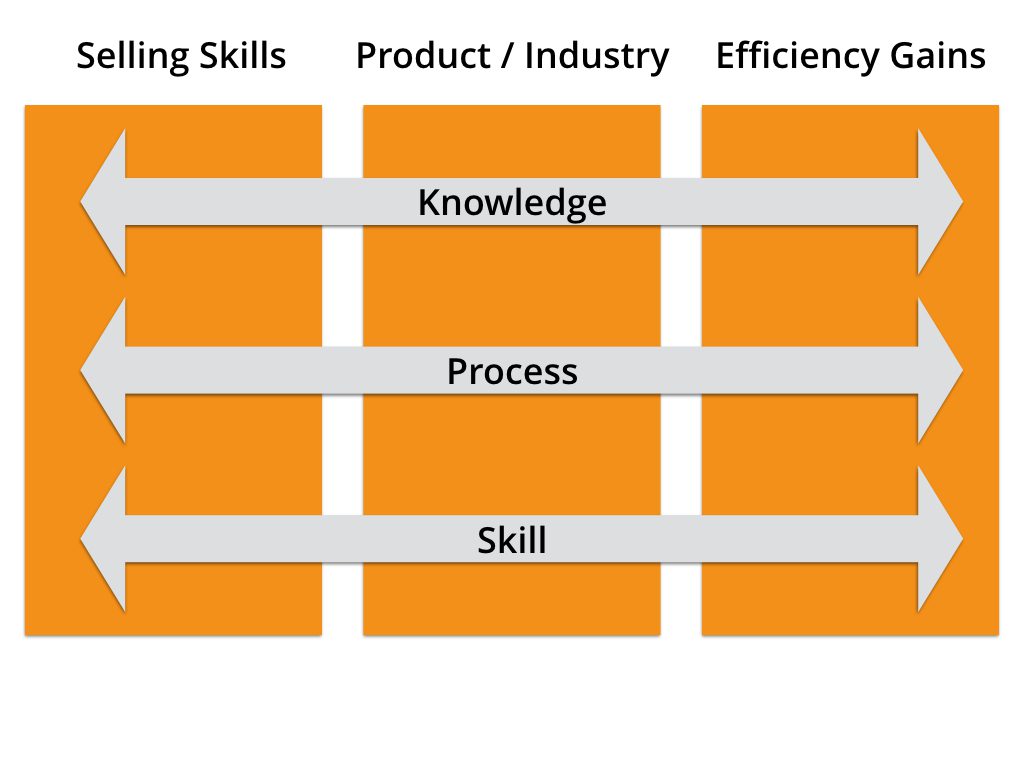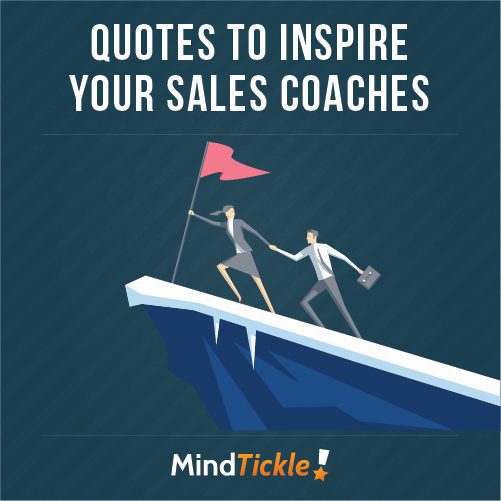In Conversation with Procore on Sales Enablement
This post is based on a webinar on the secret to building a sales enablement powerhouse. You can listen to the entire webinar here.

Procore is the world’s most widely used construction project management software. It helps contractors keep track of their projects throughout the entire lifecycle of a project, from bidding to closeout, and helps them reduce errors and cost overruns. Procore was featured on Forbes Next Billion-Dollar Startups 2016 and reached unicorn status on Dec 2016. With such high growth, the size of the company inevitably increased, and they now have over 700 employees in 7 offices across the United States.
Three challenges triggered Procore’s need for sales enablement
Procore’s sales team was growing rapidly and they were having difficulty gauging the performance of their sales team, so they implemented a structured sales enablement program. Alex Jaffe, Sales Enablement Manager for Procore, played a critical role in executing this strategy. The key challenges they addressed by implementing a well-structured sales enablement program included:
- Keeping their salespeople up-to-date on a constantly evolving product, industry, and competitive information.
- Aligning their core messaging and sales process in a period of hyper-growth. This included hiring new reps and ramping them up quickly.
- Managing and delivering sales collateral in a way that ensured a consistent customer experience
They focused on three key areas of excellence

“Our approach to sales enablement is in three different areas of excellence. They are selling skills, a definite approach to product and industry is being a powerful leader in that perspective, and then working efficiently with our technology and maximizing the results. So, we focus really in depth on creating the knowledge, process, and skills to make it simple and digestible,” explained Jaffe.
The strategy was deployed using a two-prong approach
Sales enablement at Procore was structured into two distinct categories:
- Segment based
- Functional based
All roles within the categories functioned as a conduit between sales and the different departments involved in each initiative.
The distinction based on functions and initiatives helped Procore handle their overall sales enablement program with ease.
“If you have one person focusing on sales enablement then you are not going to be able to to boil the ocean and focus on all the areas. What you guys can do is use productivity measures and understanding of what you can maximize and then do the prioritization based on that. So, at Procore what we have done is split these into two distinct buckets, which we think are two different mindsets. Different people are responsible for each of these initiatives,” explains Jaffe.
Procore’s sales enablement framework
Procore facilitated a structured, streamlined and outcome-oriented onboarding process to ensure their reps were set up for success. The first 90 days was the initial onboarding phase, and from then on it was about continual improvement, called ongoing enablement.
“We start with a simple framework that works pretty well for us. It’s very important to see sales readiness in the two distinct views. First, the onboarding, which we view as 0-90 days, and then the ongoing enablement which is 90 plus days,” explains Jaffe.
Setting expectations is key to your onboarding program
With the framework in place, Jaffe then suggests setting goals and targets based on your onboarding program. “The first thing that you guys need to start on from an onboarding perspective is understanding the approach you want to do. Ultimately the one thing that you need to address is at what stage of onboarding you are, and what are the outcomes that you want to drive. So, if you are running let’s say, an onboarding program that’s five days long on the next Monday, what does the sales reps need on that day to be successful and working on their own. Maybe it’s about understanding the pitch, understanding the customer stories and understanding how to demo and that’s all that it is. Driving those outcomes and then taking the 30-60-90 days approach and asking what outcomes do I need my teams to have in 30 days, 60 days, 90 days, and then proceed to ongoing enablement.”
There are three important objectives to an ongoing plan
According to Jaffe ongoing enablement is as important as the initial onboarding phase. He recommends that it’s tailor-made for each of your ramped up reps. Procore leverages Mindtickle for its ongoing enablement to achieve these three objectives:
- Constant reinforcement of knowledge and skills
- Regular updates of knowledge and processes
- Periodic re-calibration of processes and skills
Aligning your objectives helps to measure the impact of your program
Before you think about measuring the impact of your program, Jaffe suggests ensuring that it ’s well aligned with your overall objective.
“I think aligning your objectives with your global sales objectives as well as your company’s’ is critically important when you are measuring the impact of sales enablement. Sales enablement is not in a bubble creating its own objectives, it’s going to be completely dependent on what are we trying to drive at a company level and a global sales team level,” explains Jaffe.
At the end of the day, outcomes matter
Jaffe shared insights on how the impact of this program was measured and shared their impressive outcomes. “The most important thing with measuring the impact is identifying leading vs. lagging indicators. Leading indicators are going to be what you can coach and train your reps through. Lagging indicators are how you are going to measure that success. Lagging indicators are going to be the results closed, dollars won improvement in sales and things like that. Leading indicators would be an adoption of your program, how comfortable your reps are with the program.”
Procore has achieved impressive results with their sales enablement strategy, the figures speak for themselves:
- >90% adoption of content and sales enablement technology
- Sales reps rate the overall program at 4.8/5 according to their internal NPS survey
- 99% of their sales reps recommend the program
Through a well-structured sales enablement program, Procore has been able to keep pace with their globally expanding sales team. With Mindtickle they have found the right balance between strategy, data, and technology to achieve an impressive outcome.





